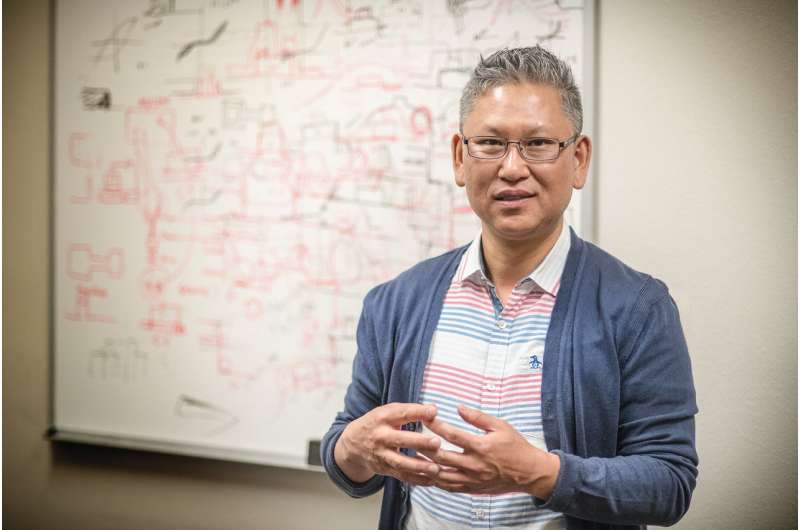UTA technology could change way computers dissipate heat

UTA researchers have received a patent on a novel cold electron transistor that drastically reduces the amount of energy required to operate as compared to traditional transistors.
The research impact could reduce the power dissipation by a factor of 100 on transistors inside consumer transistor-laden components like cell phones, laptops, tablets and workstations. The innovative transistors could yield huge energy savings dollars to companies like Google, Yahoo! or Amazon that need large amounts of transistor operations in their data centers.
Seong Jin Koh, a Department of Materials Science and Engineering professor and the principal architect behind the research, said the technology evolves now to enable large-scale, manufacturable, marketable devices.
"This novel transistor reduces power consumption, runs the devices cooler and allows smaller battery packs to operate the component," Koh said.The new technology would be invaluable since a computer or cell phone user wouldn't have to charge their device every few hours.
Instead cell phone users might only have to charge their devices once every couple of weeks, Koh said.
In addition to commercial applications, there are many military uses for the technology. Batteries weigh a lot, and less power consumption means reducing the battery weight of electronic equipment that soldiers are carrying. That would enhance soldiers' combat capabilities.
Other potential military applications include electronics for remote sensors, unmanned aerial vehicles and high-capacity computing in remote operations.
Teri Schultz, director of technology management in the UTA Office of Research, said the technology has great potential to make it to the marketplace."When you're talking about cost-saving solutions to companies as big as Google or Amazon, that speaks to the practical nature of this research," Schultz said. "That all trickles down to the consumer, whether it's someone who has a more efficient cell phone or someone using one of those large businesses."
The research also resulted in an academic paper published in Nature Communications in 2014 about cooling electrons using quantum wells. In that paper, Koh discovered a way to cool electrons to -228 degrees Celsius without external means. The process involved passing electrons through a quantum well to cool them and keep them from heating. This is the second patent issued from this family with the first issued in July 2017.
Journal information: Nature Communications
Provided by University of Texas at Arlington




















